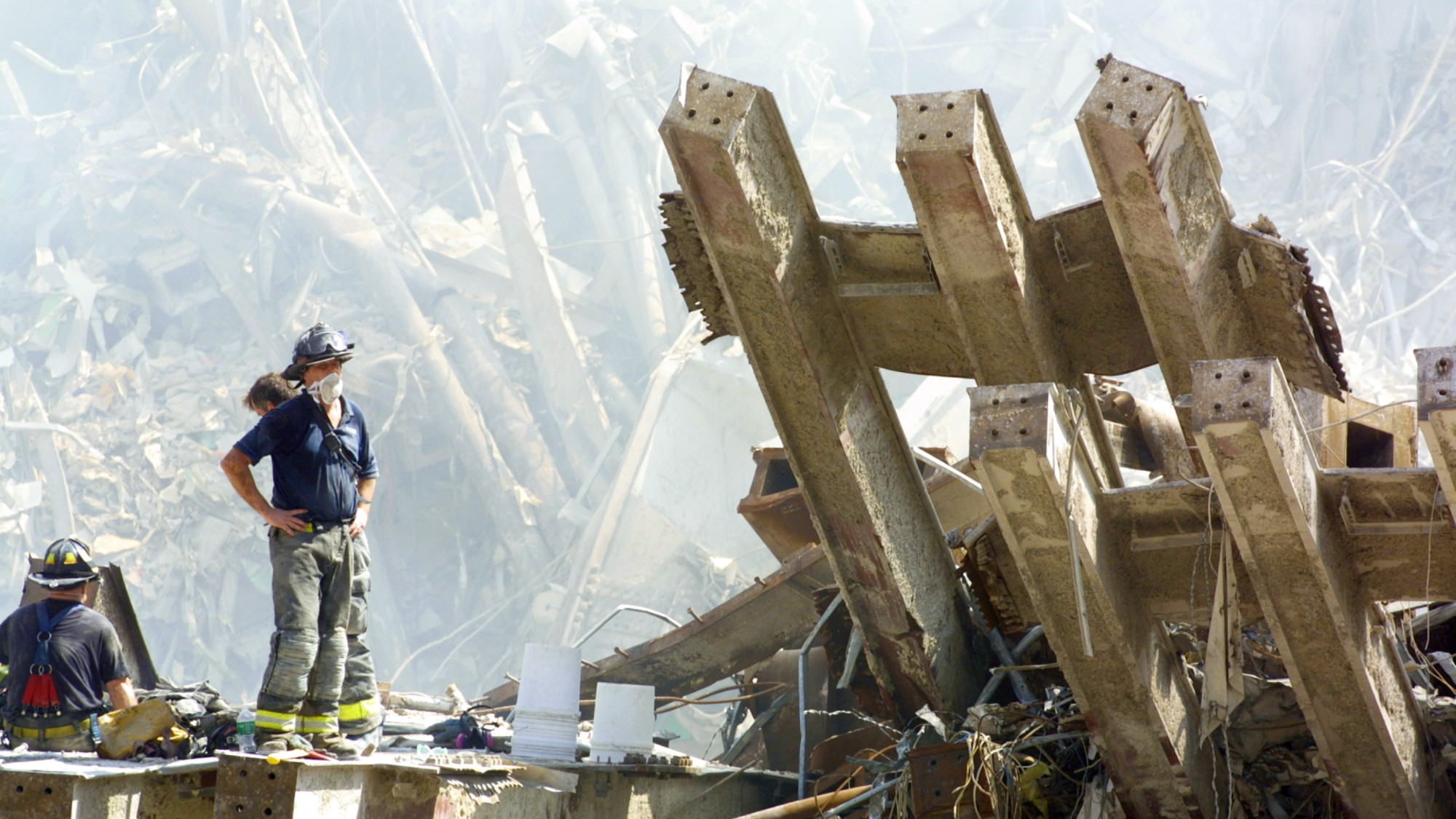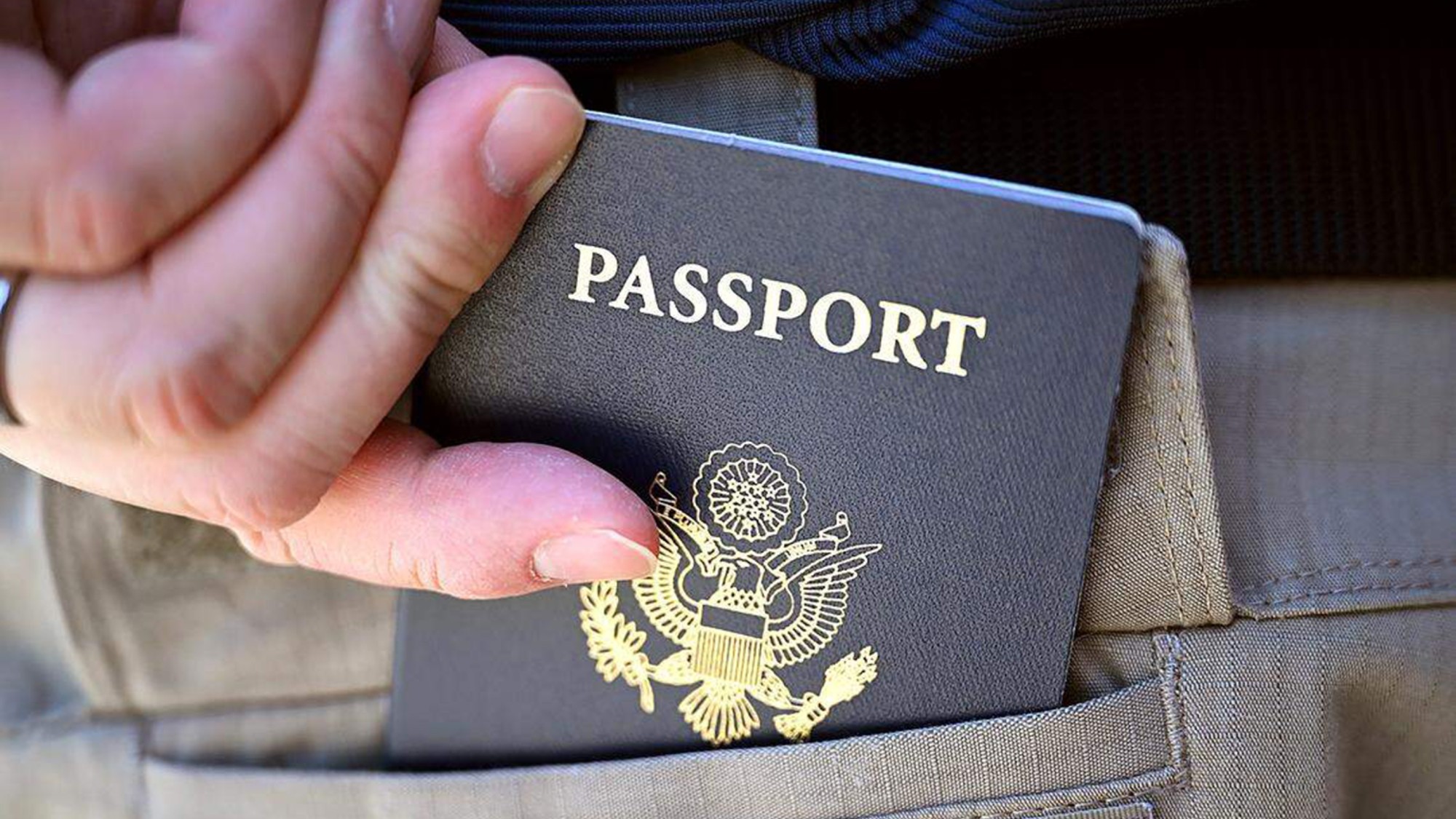Sick 9/11 responders are being left behind amid federal spending battle
Services have been cut and restored following outcry, but staffing issues remain


A free daily email with the biggest news stories of the day – and the best features from TheWeek.com
You are now subscribed
Your newsletter sign-up was successful
Many first responders to the Sept. 11, 2001, terrorist attacks have developed cancer and other illnesses from being at Ground Zero two decades ago, and the World Trade Center Health Program has always provided a lifeline for these workers. But they still face a fight for affordable health care 24 years later, and recent pendulum swings of the federal budget have renewed concerns that the program could be permanently gutted.
What is happening with the 9/11 first responder program?
The World Trade Center Health Program has "provided life-saving care to tens of thousands of people for more than two decades," but it has been struck by a "wave of staffing cuts and agency turmoil" at the behest of the Trump administration, said ABC News. Large portions of the program have been through ups and downs; the program's longtime director was "removed in February and then rehired after bipartisan backlash." However, it remains unclear "whether his legal role as administrator was actually restored."
Staffing shortages across the federal government have also hit the program, as the Trump administration has "fired and rehired certain staffers, only to terminate them again," said NBC News. These program staffers were "swept up in the Trump administration's firing of probationary workers in February" as part of a 20% staff reduction.
The Week
Escape your echo chamber. Get the facts behind the news, plus analysis from multiple perspectives.

Sign up for The Week's Free Newsletters
From our morning news briefing to a weekly Good News Newsletter, get the best of The Week delivered directly to your inbox.
From our morning news briefing to a weekly Good News Newsletter, get the best of The Week delivered directly to your inbox.
Following bipartisan backlash, the White House claimed that these staffers were rehired, but many have been "told their jobs have been eliminated and some have not been restored, despite claims they would all be rehired," said the New York Daily News. As a result, the program "remains hobbled by deep cuts made by the Trump administration," even as the White House vowed to reverse them.
What does this mean for the first responders?
The funding seesaw means that "cancer diagnoses could be delayed, mental health needs could go unmet and the federal government would break its promise to 'never forget,'" said ABC. People representing survivors and first responders are criticizing the cuts.
The cuts are "bureaucratic cruelty," Michael Barasch, an attorney representing thousands of 9/11 responders, said to The Guardian. Beyond physical maladies like cancer, there are "people with PTSD, which was diagnosed from all the body parts they were picking up, all that trauma — these people rely on treatment." The cuts mean there is "zero information" about treatments for the responders.
Even before the cuts, there "was a backlog," said John Feal, a 9/11 survivor and victims' advocate, to CBS News. The backlog "now has become a Long Island Expressway rush hour traffic, and the longer this goes on, people will die."
A free daily email with the biggest news stories of the day – and the best features from TheWeek.com
Lawmakers, including both of New York's senators, are also warning that the cuts could lead to casualties. Cutting staff "who are essential to the operation of the World Trade Center Health Program will devastate our ability to provide sick responders and survivors with the care they need," said Sen. Kirsten Gillibrand (D-N.Y.) in a statement. The cuts will "delay and deny care for our sick first responders suffering from cancer, respiratory illness and more," and are a "complete betrayal to the memory of those we lost on 9/11 and the heroes who courageously stood up to help New York and our country," said Senate Minority Leader Chuck Schumer (D-N.Y.) in the same statement.
Justin Klawans has worked as a staff writer at The Week since 2022. He began his career covering local news before joining Newsweek as a breaking news reporter, where he wrote about politics, national and global affairs, business, crime, sports, film, television and other news. Justin has also freelanced for outlets including Collider and United Press International.
-
 Why is the Trump administration talking about ‘Western civilization’?
Why is the Trump administration talking about ‘Western civilization’?Talking Points Rubio says Europe, US bonded by religion and ancestry
-
 Quentin Deranque: a student’s death energizes the French far right
Quentin Deranque: a student’s death energizes the French far rightIN THE SPOTLIGHT Reactions to the violent killing of an ultraconservative activist offer a glimpse at the culture wars roiling France ahead of next year’s elections
-
 Secured vs. unsecured loans: how do they differ and which is better?
Secured vs. unsecured loans: how do they differ and which is better?the explainer They are distinguished by the level of risk and the inclusion of collateral
-
 Trump reclassifies 50,000 federal jobs to ease firings
Trump reclassifies 50,000 federal jobs to ease firingsSpeed Read The rule strips longstanding job protections from federal workers
-
 Gavin Newsom and Dr. Oz feud over fraud allegations
Gavin Newsom and Dr. Oz feud over fraud allegationsIn the Spotlight Newsom called Oz’s behavior ‘baseless and racist’
-
 How ‘Manchesterism’ could change the UK
How ‘Manchesterism’ could change the UKThe Explainer The idea involves shifting a centralized government to more local powers
-
 ‘Dark woke’: what it means and how it might help Democrats
‘Dark woke’: what it means and how it might help DemocratsThe Explainer Some Democrats are embracing crasser rhetoric, respectability be damned
-
 San Francisco tackles affordability problems with free child care
San Francisco tackles affordability problems with free child careThe Explainer The free child care will be offered to thousands of families in the city
-
 A running list of the US government figures Donald Trump has pardoned
A running list of the US government figures Donald Trump has pardonedin depth Clearing the slate for his favorite elected officials
-
 The Mint’s 250th anniversary coins face a whitewashing controversy
The Mint’s 250th anniversary coins face a whitewashing controversyThe Explainer The designs omitted several notable moments for civil rights and women’s rights
-
 US citizens are carrying passports amid ICE fears
US citizens are carrying passports amid ICE fearsThe Explainer ‘You do what you have to do to avoid problems,’ one person told The Guardian
